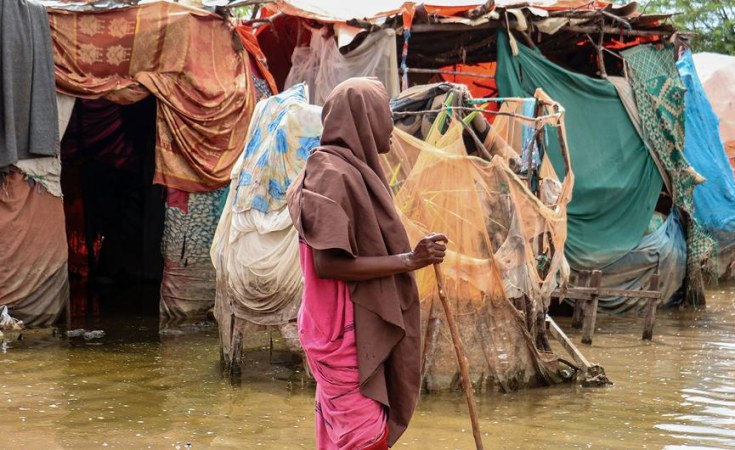Nairobi, Kenya — The combination of climate change and a growing world population may threaten global food security. As the United Nations marks World Population Day, changes in agriculture, especially in Africa, may be the only way forward.
The global population is expected to grow over the next 60 years, from 8.2 billion today to 10.3 billion in the 2080s. Much of that growth will occur in Africa, where many countries still have high fertility rates.
The United Nations Population Fund said climate change is expected to exacerbate global inequalities and trigger national and international migration.
U.N. agencies say 1 billion of the 1.3 billion people living in Africa struggle to afford healthy diets and hunger worsened between 2019 and 2022.
Food needs grow, farmland shrinks
Africa's farmland has been shrinking because of persistent drought, while the growing population leaves less space to farm.
Chris Ojiewo, principal scientist at the International Maize and Wheat Improvement Center, said African farmers need to produce a lot of food in small spaces to feed the growing population.
"We cannot even think of a human way ... or ethical way to stop population growth, so let it grow but let us people able to produce more within a small area," said Ojiewo. "For example, where we are able to produce only one ton of maize per hectare, why don't we work and that is what we are doing to improve this productivity to go beyond 1 ton to 2 to 3 to 4 to 5 to 10 tons per hectare, considering developing varieties but also production systems that enable us to produce in the intensified system but also to produce even when there is drought."
Speaking at a conference in Mexico this week, Ann Vaughan, deputy assistant administrator of the U.S. Agency for International Development, said scientific research and technology can help farmers cope with climate change and assist them in cultivating diverse crops.
"To help make sure we are accelerating smart innovations so that farmers are getting access so even in the face of horrific drought, they are still able to produce food for themselves and their families," said Vaughan. "... what that looks like is making sure we have the right science, the right seeds, the right private sector partners who are pulling and creating a demand for these types of seeds, diversifying so that you are not just growing maize but you are also growing cowpeas and other things which are more resilient to climate change and the brighter type of practices so that you are mixing intercropping and having less tilt."
Initiative promotes sustainable practices
In 2010, the U.S. government launched Feed the Future, an initiative aimed at addressing the causes of hunger and poverty in developing countries worldwide.
The program improved African agriculture systems by promoting sustainable practices that considered climate challenges. That helped increase economic opportunities, employment and trade.
In some African countries, the dominance of maize crops as the primary source of food has worried experts. The crop relies on rain, and climate change is causing unpredictable rainfall patterns.
African farmers must change when and what they grow to produce enough food, said Ojiewo.
"Ensuring that production and productivity continue, whether in season or off-season, does not necessarily mean relying 100 percent on rain-fed agriculture," said Ojiewo. "Diversification, as I mentioned here, does not mean overlying on one single crop for population survival. I know many countries are relying on maize in terms of cereals and ignoring some of the other crops that will fit into these systems."
Due to increasing drought in several African countries, farmers are urged to cultivate crops such as cassava, sorghum, pigeon peas, and pearl millet, which are resilient to unpredictable and harsh conditions.


